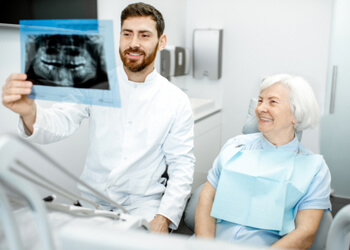Doing a risk management assessment is the right way to answer ‘are dental implants safe’. Even though dental implants are between 95% and 98% successful there are still individual risk factors to be aware of and consider before moving ahead with the treatment. And even though your dental professional will manage your risk factors to a large extent, you should be aware of them before you have dental implant surgery.
Factors To Consider Before Dental Implant Surgery
Not everyone is a suitable candidate for dental implants. This is something to be aware of because implants are considered the most effective long term tooth replacement. If you
- Are a smoker
- Suffer from a chronic disease such as diabetes
- Suffer from a condition that interferes with your body’s ability to heal itself
- Have gum disease
Then it is quite likely your dentist will rather recommend another tooth replacement option like dentures or a dental bridge because your chances of implant failure are statistically quite high.
Are Dental Implants Safe?
Dental implants are considered one of the safest surgeries in the world and have been performed since the 1950s, so the procedure has been under continuous improvement. Implants are usually crafted from titanium alloys, which is biocompatible and which integrates with the jawbones of most patients without complication. However, as with any surgical intervention implants do carry some degree of risk.
What Are The Complications And Risk Factors Associated With Dental Implants?
It is possible for something to go wrong in dental implant surgery in a healthy patient. Some of these possible complications include infection and damage to the nerves, other teeth or sinuses during the surgery.
Infection At The Dental Implant Site
In many cases, an infection at the dental implant site is caused by bacteria accessing the dental implant site. This can happen if there is a gap between dental implants and your gums. When this happens your gums may present as swollen, red and tender. They might leak pus or bleed. Infections of the implant site are usually mild in nature and are relatively simple to treat in the majority of cases.

Infection Of The Jaw Bone
An infection of the jaw bone happens less frequently but it is more serious and more difficult to treat after dental implants. You will probably be given antibodies to treat it and your implant is usually removed to help with the healing process.
Damage To Teeth And Blood Vessels
Any damage to surrounding teeth and blood vessels that occurs is likely to do so during the procedure itself. In the case of damage to blood vessels, this can occur when the dentist drills too close. This is unusual and can be managed by working with a reputable and experienced dentist for your dental implant surgery.
In the event that damage is done to one of the other teeth in your mouth, treatment is usually a filling or restoration to help protect your tooth pulp.
Nerve Damage
If nerve damage occurs as a result of your implant surgery it is usually in your lower jaw and occurs because the dental implants have been placed too close to a nerve. You may feel numbness, tingling or pain in your mouth, teeth or gums. This situation can be avoided by your dental professional doing the necessary x-rays and digital photographs. Nerve damage is rare but in order to manage and treat it, your dentist will have to remove the implant so that the nerves fibres can reconnect.
Problems With The Sinuses
It is also possible but unlikely for dental implants to cause problems in the sinuses when they are placed in the upper jaw, during dental implant surgery. This occurs when the implant protrudes through the sinus bones and it can only be managed by removing the implant and giving the sinus bones enough time to repair.
Ensure You Stay Healthy And Safe
There are some measures you can take to ensure that you stay healthy during and after your implant surgery.
- Quit smoking before your procedure and do not smoke after your implant has been placed.
- Practice good dental hygiene, which includes twice-daily brushing and flossing. This is especially important if your tooth loss occurred as a result of dental decay.
- Keep your mouth and implant site clean after implant surgery. Rinse your mouth with salt water and don’t touch the area with your finger or tongue.
- Follow all instructions exactly as indicated by your dentist. This means if you are given antibiotics to take, you must do so.
Still wondering: ‘are dental implants safe’? Please contact us to make an appointment: (02) 9158 6379.





